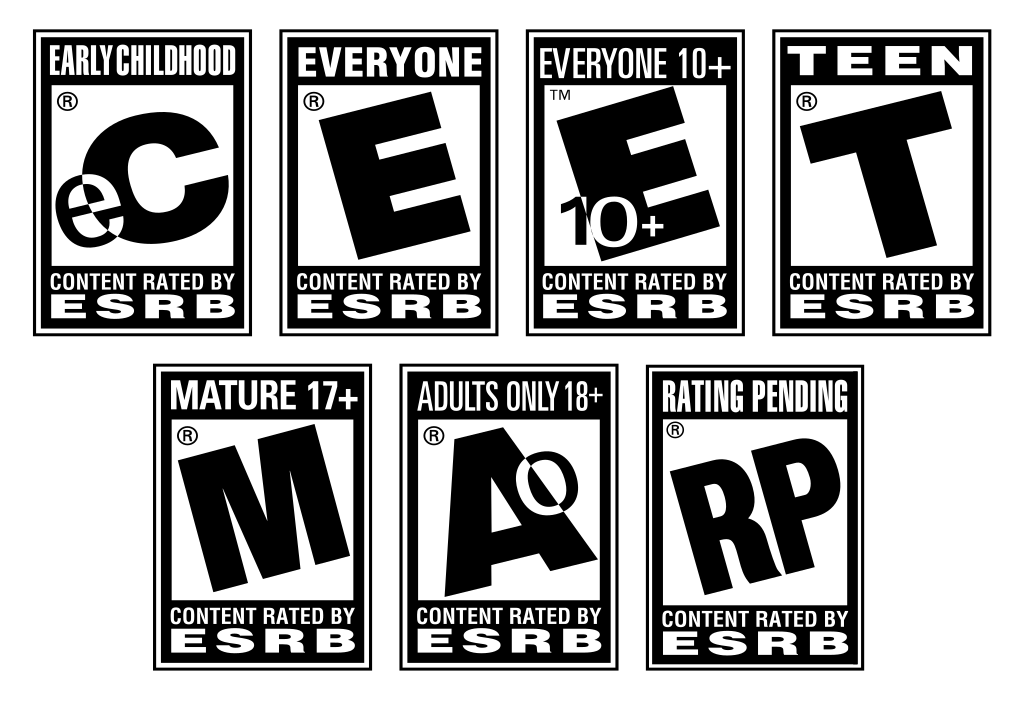It’s a classic scene in many households – parents frustrated and bewildered as their kids spend hours engrossed in video games. What may look like mindless button-mashing to mom and dad is actually a rich world of engaging stories, stimulating challenges, and opportunities to connect with friends. While modern video games may seem foreign to parents and older family members, they hold great potential for bringing the family together.

Gaming today is a far cry from the arcade and console games many adults grew up with. Current games feature intricately crafted worlds to explore, customize, and even create together. Cooperative play fosters communication, teamwork, and understanding between players of different ages and skill levels. The interactive stories and adventures immerse multiple generations in shared experiences they can bond over long after the game console is powered down.
This guide will explore how video games can bridge generational divides and strengthen family bonds. We’ll cover how gaming opens new avenues of connection and understanding through cooperative play, empathy-building storytelling, shared nostalgia, and intergenerational learning. You’ll discover practical tips for evaluating age-appropriate games, setting healthy gaming habits, teaching digital etiquette and literacy, and using gaming time to start meaningful conversations within your family.
OpenAI’s Sora: new gaming creation revolution!
While screens have acquired a reputation for dividing families, the immersive worlds housed inside modern gaming systems can bring loved ones together through shared adventures, learning, and quality bonding time. Read on for insights on how to leverage the power of cooperative play and well-chosen games to foster intergenerational connections and forge shared memories that will last long beyond game over.

Building Connections Through Cooperative Play
Playing video games cooperatively with your kids can be a great way to build connections and strengthen your relationship. Sharing the experience of playing together creates bonding moments and a shared activity you can both enjoy.
Cooperative multiplayer games provide benefits beyond just having fun together. They encourage communication, teamwork, and problem-solving as you work together towards a common goal. Parents can gain insight into their child’s interests, skills, and thought processes. Kids also get a chance to teach parents something new and take the lead at times, building self-confidence.

Finding age-appropriate cooperative games tailored to your child’s abilities is key. For younger kids, simple and visually engaging games work best. The LEGO series of games like “LEGO Star Wars” are great for early collaborative play. For pre-teens, the Kirby franchise provides cheerful and not-too-challenging co-op adventures. Teenagers tend to enjoy more complex shared worlds, like survival games “Minecraft” and “Terraria“. The “Portal” series also has outstanding puzzle-based co-op modes.
Whatever you choose, look for games with adjustable difficulty levels so players of different skill levels can progress together. The shared experience of cooperative play enables parents and kids to connect through video games in a fun and meaningful way.
Fostering Empathy Through Gaming
Video games have incredible potential to foster empathy between kids and parents by providing windows into each other’s worlds and perspectives. Character-driven narrative games allow players to step into someone else’s shoes, helping build understanding across generations.

Parents may gain insights into their child’s interests and outlook by experiencing the stories, characters, and game worlds that resonate with them. Likewise, kids can develop empathy and appreciation for elements of their parent’s past by playing retro games they enjoyed at the same age.
Discussing the motivations, emotions, and arcs of gaming protagonists provides opportunities for meaningful connection. Analyzing character choices together builds critical thinking while revealing each other’s values. Role-playing complex characters helps kids and parents empathize with experiences beyond their own.
Are Triple A Video Games Becoming Too Expensive for Gamers?
Games like “That Dragon, Cancer” share raw, emotional narratives from real-life perspectives. Titles like “Life is Strange” explore mature themes of identity, relationships, and mental health. Playing through immersive character journeys fuels post-gaming conversations and forges formative memories.
Overall, gaming’s interactive storytelling provides impactful windows into how others think, feel, and experience life. Empathetic games inspire compassion, bind generations, and demonstrate our shared humanity beneath surface differences.
Games as a Common Language
Video games can provide a common language that bridges generational divides within families. With so many multiplayer and cooperative games available today, parents and kids can come together to play in shared virtual worlds.
Games give families an activity to bond over and talk about, even if their regular interests differ. A parent may gain insight into what engages their child by playing popular games together and seeing the gameplay mechanics and storytelling elements that capture their imagination. And kids can learn what games their parents enjoyed growing up, providing a peek into their childhood experiences.

Playing together creates opportunities for discussing strategy, problem-solving, story narratives and more. The post-game conversations can strengthen family bonds as both generations gain appreciation for what the other finds exciting or meaningful about gaming. Kids may pick up historical references or nostalgic tidbits from retro titles their parents introduce them to. And parents can learn gaming vernacular and understand multiplayer dynamics by diving into the virtual worlds their kids love to inhabit.
With gaming as a shared pastime, parents can relate to their kids’ interests more authentically. Intergenerational gameplay helps family members find common ground in virtual worlds where age matters far less than skill, teamwork and imagination.
Manor Lords: A New Dawn of Medieval Strategy Gaming
Teaching Digital Literacy and Etiquette
As with any technology, it’s important for parents to teach kids proper digital etiquette and set boundaries around screen time when gaming. This establishes good habits and helps ensure a safe, positive gaming environment.
When setting limits, avoid an all-or-nothing approach. Not all screen time is equal, and activities like gaming can have social and educational benefits when done right. Work together to find a reasonable daily or weekly limit that allows for quality family time and other priorities.

Make sure limits are consistent across siblings to avoid resentment. Ease time restrictions as kids demonstrate more responsible use.
Discuss online safety from an early age. Set ground rules like never sharing personal information and asking for parent approval before downloading new games or making purchases. Make sure kids understand that their cyber actions have real-world effects.
Model polite, constructive gaming behavior yourself. Encourage children to avoid negative language and show good sportsmanship, win or lose. Make it clear that harassment, exclusion, or bullying is unacceptable.
Consider designating gaming areas out of private bedrooms. This makes it easier to monitor and participate in gameplay. Keep the lines of communication open so kids feel comfortable coming to you with any concerns.
With some forethought and involvement, gaming can be an enriching experience for the whole family. Establishing healthy limits and modeling digital citizenship skills allows kids to reap the benefits while avoiding potential pitfalls.
Game Nostalgia Across Generations
There’s no better way for parents to share their childhood with kids than introducing them to the classic games they grew up playing. For Gen X parents, this often means games from the 8-bit and 16-bit console eras of the 1980s and 1990s. Refreshing the memories of these pixelated graphics and chiptune soundtracks is a surefire source of nostalgia.

Kids may be amazed at the simplistic graphics and gameplay of retro titles like “Super Mario Bros.”, “The Legend of Zelda”, “Sonic the Hedgehog” and classic arcade games. But beyond reliving their youth, parents have the opportunity to impart gaming history, context and appreciation for how far games have come in terms of technology and immersion. Parents can share their own experiences playing these games, stories of competition with siblings and friends, and the thrill of discovering hidden secrets or beating that next level.
The retro and pixel art aesthetic has also made a major comeback. Modern indie games continue to emulate old-school graphics and gameplay as a stylistic choice. Some franchises have released retro remakes or compilations, breathing new life into classic titles.
A new generation of gamers are embracing the nostalgia. Parents have a wealth of updated retro games to introduce their kids to – from platformers like “Shovel Knight” to RPGs like Stardew Valley. With options spanning multiple eras of gaming history, there are plenty of opportunities for intergenerational sharing and learning. By playing together, kids gain an appreciation of gaming’s roots while parents fondly rediscover the magic.
Learning Through Gaming Together
Video games provide a fun and engaging way for different generations to learn together. Playing games can create opportunities for informal education as kids teach their parents or grandparents about new technology, while parents impart wisdom and knowledge to their children.
Educational games allow families to explore historic events, practice problem-solving skills, and more. Parents may gain insight into their child’s strengths and interests by seeing how they play games. And children can learn patience, strategy, and communication skills from playing with their elders.

Intergenerational gaming enables knowledge sharing across age groups. A grandparent may share stories while playing a nostalgic retro game with a grandchild. Or a child can educate parents on trends, technology, and digital culture through co-play. Gaming together builds connections that make learning more natural and reciprocal.
With some care and intention, video games can transform family bonding into an enriching exchange. The right games provide a constructive context for discussing life lessons, current events, plans for the future, and more. By gaming together, families turn screen time into an opportunity for growth across generations.
Evaluating Age-Appropriate Games
When selecting video games for family play, it’s important to consider age-appropriate content. What’s suitable for your 12-year-old may be too mature for your 8-year-old. Likewise, a game engaging for kids could feel boring for parents.

Finding the right balance involves researching game content, ratings, and reviews. Useful resources include:
- ESRB Ratings: The Entertainment Software Rating Board provides age and content ratings such as “Everyone,” “Teen,” and “Mature.” These indicate the appropriate audience based on content like violence, language, etc. Check ratings when choosing new games.
- Common Sense Media: This site offers independent game reviews and age recommendations based on developmental criteria. Search for any game title to see at-a-glance age ratings and detailed content assessments.
- Co-op Game Lists: Look up lists of top co-op games played both solo and with others. These provide great collaborative options for multi-generational gamers. Co-Optimus is one site offering filters for co-op and age rankings.
- Gaming Publications: Reviews from gaming sites and magazines can provide guidance around gameplay, difficulty, and appropriateness for parents vs. kids. Ask if the experience seems accessible for both novices and skilled gamers.
- Hybrid Games: Some games transition between skill levels or have different modes tailored to kids vs adults. The Lego series and many racing titles accommodate players of all ages via varied challenges.

The key is involving both parents and kids in choosing games appealing to everyone. Set expectations around content ahead of time, align on games with interaction modes fitting different abilities, and discuss gaming priorities as a family.
Setting Family Gaming Guidelines
When families game together, it’s important to set some ground rules to help make the experience fun for everyone involved. Creating guidelines around taking turns, genre preferences, screentime limits, and etiquette can help minimize conflicts and foster togetherness.
Take Turns Choosing Games
Give each family member a chance to pick games they enjoy. Rotate who gets to choose the game for your next gaming session. This teaches compromise and allows each person’s preferences to be included. Try alternating between multiplayer cooperative games that require teamwork and single-player games that allow individual creativity and mastery.
Agree on Genres
Discuss which types of games appeal most to each person, then aim for a balance. For example, if the kids love platformers and racing games while parents prefer RPGs and puzzles, try alternating between those genres. Look for story-driven games with co-op modes that provide something for everyone.
Unlock Your Potential: Embrace Health and Victory in Gaming
Manage Screen Time Responsibly
Gaming together shouldn’t mean endless hours glued to a screen. Establish appropriate time limits based on age, without making gaming feel like a chore. Use a timer or take breaks between matches. Make sure to build in non-gaming activities too. Gaming should enhance family time, not replace it entirely.
Foster Good Gaming Etiquette
Set expectations for polite behavior during group gaming sessions. Take turns, avoid distracting others, and be gracious winners and losers. Parents can model gaming etiquette and coach kids through any conflicts. Establish device-free meals and zones in your home to encourage non-tech conversations.
By setting some simple guidelines tailored to your family’s needs and dynamics around shared gaming, parents can make it a rewarding way to engage with kids and understand their digital world.
GameSpeak Unveiled: Dive Into the Heart of Video Game Language!
Conclusion
Video games and gaming systems continue to be a source of entertainment and enjoyment for people of all ages, as has been the case since the early days of gaming. While differences between the game experiences of younger and older generations exist, they can be bridged through patience and understanding. The fast pace of change in gaming technologies can sometimes be alienating, but focusing on shared interests and engaging in cooperative play opens communication lines between parents and children.
Gaming together builds shared memories and inside jokes that strengthen familial bonds. Cooperative games encourage teamwork, empathy, and conflict resolution through working together to achieve goals.
Parents can impart wisdom and lessons around digital literacy, online safety, and ethical gameplay. Ultimately, video games create opportunities for meaningful dialogue, mutual understanding and relationships that endure beyond the screen. With an open mind and willingness to embrace generational differences, gaming can become a bridge between parents and children rather than a divide.









